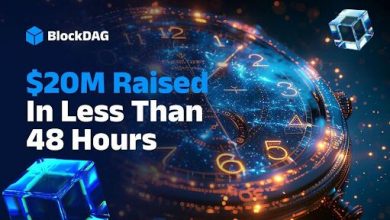The Evolution of DevOps in the Era of Cloud Technologies: Denis Tiumentsev's View

The DevOps sector is experiencing remarkable growth, with projections indicating an increase from USD 10.4 billion in 2023 to an impressive USD 25.5 billion by 2028. This trend highlights the vital importance of DevOps professionals in modern software development and IT operations. Denis Tiumentsev, the Lead DevOps Engineer at Integro Technologies, will discuss his journey and provide insights on how to pursue a career as a DevOps expert, offering aspiring professionals guidance on navigating the rapidly expanding field, ensuring they are equipped with the skills and knowledge needed to thrive in an era where DevOps is becoming integral to technological innovation and efficiency.
Denis, thank you for joining us today. Could you start by telling us a bit about your career progression and the companies that have been pivotal in your development from a system engineer to a Lead DevOps Engineer?
My career kicked off at Cinimex, a banking software integrator and developer, where I spent over five years. I started as a Middle Linux Engineer and progressed to a Senior Linux engineer. In my final year, I discovered the exciting and inspiring world of DevOps, broadening my technology stack to incorporate DevOps practices.
After Cinimex, I joined Eurochem, a large resource extraction company headquartered in Switzerland. Here, I worked as a DevOps Node.js Engineer. This role allowed me to hone my DevOps skills to a middle level while continuing to perform Linux engineering tasks at a senior level. My experience at Eurochem significantly boosted my knowledge and practical skills in DevOps.
In 2017, I had the opportunity to join Integro Technologies, which later became part of RAMAX Group International, starting my journey as a Senior Linux System Engineer. As new projects came along my technology stack at work has expanded to include common DevOps practices. The dynamic and impactful nature of DevOps engineering facilitated my progression from a middle to a senior DevOps engineer, and I am pleased to have reached my current position as Lead DevOps Engineer in early 2024.
Denis, you have worked in the field of development environment infrastructures, including in the field of transportation, and have achieved a certain level of success in this area. Working on a project related to supporting and developing the infrastructure for a transportation mobile application for the Moscow Department of Transportation is the next significant step in your career. Could you share more about this and other successful projects?
Undoubtedly, this project, focused on the Moscow Department of Transportation, was one of the most interesting in terms of the technology stack I have worked with. Our task was to support and enhance the mobile application, which plays a socially significant role and helps many Moscow residents access high-quality transportation-related information services.
The scale of the project, the number of integrated services, the volume of data processed, and the critical services it provides made it particularly challenging. We aimed to maintain high availability and performance while gradually integrating new features or replacing outdated functionality with new ones. The steady achievement of project stability and the gradual improvement of functionality was largely accomplished through the collaborative efforts of our development team and the DevOps support group.
With over 2 million active users, the application provides essential and useful information about Moscow’s transportation, significantly impacting the daily lives of Muscovites and enhancing the convenience of using all types of Moscow public transport, including buses, electric buses, trams, as well as car sharing, electric scooters, bicycles, and taxi services. As a DevOps engineer, I was responsible for supporting and developing integrated services, optimization and automation of the infrastructure, and enhancing its fault tolerance to minimize incidents, thereby ensuring the application’s uninterrupted operation for end users.
At some point in the past, you also worked in application support and infrastructure for the air transport infrastructure of Aeroflot. Could you elaborate on your role in projects like the CLAIMS/ASKAR and A350 initiatives for Aeroflot, a globally recognized leading Russian airline on projects with which Integro Technologies and you, as an engineer, worked in 2017 and 2022?
Of course. The CLAIMS/ASKAR project for Aeroflot was one of the first major projects I worked on. It utilized IBM products for collecting and analyzing Aeroflot customer feedback from various social networks using IBM big data solutions, including IBM PureData Netezza. Additionally, it involved analyzing demand for airline tickets and providing pricing recommendations for Aeroflot operators.
I was responsible for the system’s infrastructure and post-launch project support until the project was fully transferred to the client.
Another noteworthy project was the A350 project, which involved relocating the infrastructure for the software managing Aeroflot’s A350 Airbus fleet from Toulouse, France, to a cloud infrastructure physically located in Moscow. This required close collaboration with Airbus engineers who traveled to Moscow for this purpose.
I also contributed to several other projects, including the “Portal DPP”, which created an online personal account system for Aeroflot’s pilots and flight attendants, and the Cmakk Messenger project, which facilitated the exchange of official messages between upcoming Aeroflot flights and international airports. Currently, I’m working on the Moscow Department of Transportation project, supporting the development of a mobile application that provides information services to more than two million active users. This involves supporting and enhancing embedded services, optimizing and automating the infrastructure, and minimizing emergency incidents
You stay updated with the rapidly evolving technologies in the DevOps field and help your colleagues share your experience including through scientific articles. Please tell us a bit about your scientific research.
Continuous learning is essential in the tech industry, especially in a field as dynamic as DevOps. Staying current with the latest advancements is crucial for maintaining a competitive edge effectively addressing emerging challenges and implementing new useful DevOps practices into my work, which also contribute significantly to the automation and increased efficiency of operations and infrastructure support.
I make it a point to attend industry conferences, participate in webinars, and contribute to open-source projects. Additionally, I encourage a culture of knowledge sharing within my team, where we regularly hold workshops and discuss the latest trends and tools. This collaborative approach not only helps us stay updated but also fosters the best DevOps practices in my daily work.
This dedication to continuous learning has led me to develop several articles on contemporary DevOps methodologies and innovations. Some of my works include “Modern Approaches to Orchestration of Microservices: A Comparative Analysis”, which examines different strategies for managing microservices, and “Agile Practices in DevOps: CI/CD”, focusing on integrating agile methodologies with DevOps practices. I’ve also explored the “Evolution of DevOps: The Role of AI in Modern Development,” discussing how AI contributes to the transformation of DevOps, and many others.
These topics are certainly relevant and insightful. What skills and qualities do you consider essential for a successful career in DevOps? What advice would you give to aspiring DevOps engineers looking to advance in their careers?
Key skills for a successful DevOps career include a solid understanding of system engineering and principles of infrastructure management, as well as knowledge of modern orchestration and automation tools like Kubernetes, Docker, and Ansible.
Understanding CI/CD principles and having experience in providing the necessary infrastructure for continuous development is also crucial, especially for the efficiency and competitiveness of software product development. This is also the role of an experienced DevOps specialist – to provide such an environment for developers.
Staying updated with emerging technologies and methodologies, such as GitOps and the integration of the best and most modern practices in the field of DevOps, including considering trends in artificial intelligence (AI), can be a valuable assistant in the work of a DevOps engineer. Additionally, problem-solving skills and adaptability are essential for quickly addressing challenges.
My advice to aspiring DevOps engineers would be to focus on both infrastructure operations and automating development processes. Understanding the problems from both perspectives allows you to create more effective solutions in the creation of development infrastructure.
Mastering tools like Kubernetes, Docker, Git, and cloud platforms is crucial. But beyond technical skills, cultivate soft skills such as communication and teamwork, as they are equally important in bridging the gap between development and operations teams, this is especially important for DevOps, as the work involves constant interaction with developers.
Finally, never stop learning. Stay curious about new technologies and trends, and actively seek opportunities to grow professionally.

Source: The Evolution of DevOps in the Era of Cloud Technologies: Denis Tiumentsev's View




